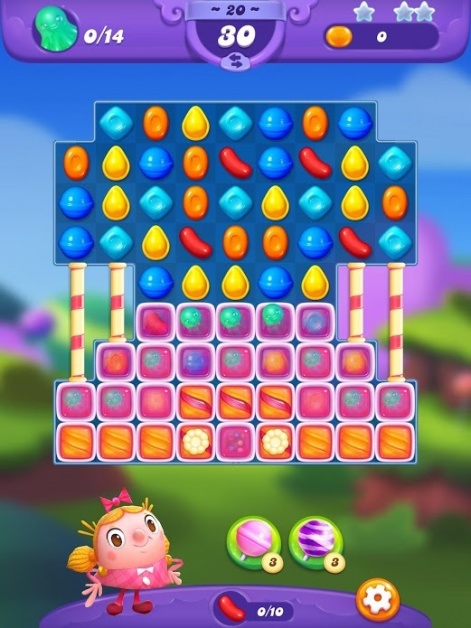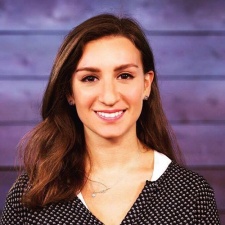The games industry plays host to a colourful cast of diverse individuals, from artists and coders to narrative designers and studio heads.
The skills to pull off these roles, however, are complex and differing, with each position requiring mastery in its field – especially in these complex times we are all living through at the minute.
To highlight some of the brilliant work that goes on behind the scenes as well as how employees around the world are adapting to the life of remote work, PocketGamer.biz is reaching out to the individuals who make up the games industry in our Jobs in Games: Remote Working series.
This week we spoke with Facebook Gaming head of mobile gaming partnerships for EMEA Joy Marianowicz.
PocketGamer.biz: Can you tell us about your current role and what it entails?
Joy Marianowicz: In my role, I lead Facebook's Gaming developer partnerships in the mobile space across Europe, the Middle East and Africa. That means working closely with a range of games companies to help make their titles more social as well as tapping into Facebook Gaming's huge player base by publishing games on our platform directly.
On a day to day, I empower an incredible team of strategic partner managers to make mobile games more socialJoy Marianowicz
Internally, my team acts as the voice of our partners, constantly feeding back what we learn to our product and engineering teams to shape our products accordingly and provide the most value to developers and players.
On a day to day, I empower an incredible team of strategic partner managers to make mobile games more social via our products, platforms, and tools as well as work closely with our internal teams to define what's next.
How did you first get into games and how did you progress into this role?
I've always played a ton of games as a kid and definitely clocked my fair share of hours on Candy Crush during my university days. But professionally, my journey into games started at Google, where I worked on the mobile app ads team.
In 2013, this was new territory and we quickly realised that the most innovative, agile and data-driven clients were mobile games companies. I started by building out the German and Israeli market - which was a crash course in the games business - and since then, there was no looking back. Through launching mobile app installs all the way to UAC, I loved every step of working closely with the biggest and most innovative players in the space.
After the team grew significantly, it was time for my next challenge and I moved to Facebook Gaming to work on partnerships, which allows me to be more involved in the games themselves.
Over the last four years here, my role evolved from building the ecosystem around Instant Games to driving the adoption of our new Gaming SDK all the way to now leading a team to support our partners on all the platforms and tools Facebook Gaming provides.
What did you study (if anything) to get your role? What courses would you advise for aspiring professionals in the area?
My path into my current role was by no means straightforward. I studied Creative Advertising in London, which should have led me into an art direction or copywriting role in a large agency. Eventually, the course mainly helped me realise that looking at data and coming up with a concrete plan was much more my strength than the creative side.

Hence, my dissertation focused on digital advertising and led me to an internship at Google in the branding team, where I worked for clients like Unilever. That internship evolved into a full-time role at Google, where the push for mobile app opened the doors for me to get into the games industry.
Do you think there are any misconceptions, public or professional, surrounding your area of expertise?
Absolutely! There is a certain stigma to games being misperceived as hardcore and male oriented, while the casual genre is one of the largest out there and half the players are female.
Gaming is the largest entertainment medium out there, but it's not yet recognised in mainstream culture the way movies or music are. On the bright side, this image is gradually changing over the last couple of years, and I am excited for what's next.
What advice do you have for someone looking for a job in this profession?
The beauty of the games industry is that there is such a big variety of skills and talent needed. From designers to user acquisition managers, the industry is growing rapidly and the economics of games are also ever-evolving. Find your strength and be passionate about the company and their approach to making games.
The massive momentum led to Facebook Gaming reaching 200 per cent year-over-year growthJoy Marianowicz
How has the shift from office to remote working impacted your role, if at all?
The demand for games has only risen in a world that is now more disconnected than ever due to Covid-19, so myself and the team have been dedicated to meeting those needs by working very closely with our cross-functional teams across the globe. From our regional partnership teams to our engineering team in Seattle and beyond, we are used to not being in the same room and working across time-zones.
As a team, we quickly managed to adapt and compensate for not sitting next to each other by avidly using Facebook Workplace, which thankfully makes it very easy and intuitive to communicate effectively, whether it’s in real-time or async.
From an external perspective, not being able to meet partners face to face or attend events is challenging, but the whole industry has shown real resilience and willingness to keep pushing on despite the headwinds.
We want to help build the world's gaming community - a place where everyone can play, watch and share the games they love. So, it's great to see that StreamElements just released their Q2 livestreaming industry report and Facebook Gaming peak hours watched jumped to 342 million in Q2, increasing by 75 per cent since last quarter. The massive momentum led to Facebook Gaming reaching 200 per cent year-over-year growth, increasing from 111 million hours in June 2019 to 334 million in June 2020.
What does your typical day look like when working remotely?
Every day starts with a big cup of coffee and then, as always, starts with catching up on what our Asia-Pacific and North American teams have been up to while I was sleeping. This is followed by speaking with my direct team and aligning on top-of-mind topics and projects.
Throughout the day, I am joining meetings with our partners and internal stakeholders. The most intense time is probably from four onwards when our US teams wake up and we start coordinating with that side of the globe. From a work perspective, not much changed apart from having a less comfortable chair and not being spoiled by our amazing culinary team.
What do you think are the biggest advantages and disadvantages of remote working?
One of the biggest advantages is definitely the flexibility it gives so many people to choose where they want to work from. Personally, I enjoy being in the office, but for many of us, working remotely is a welcome change of scenery and added flexibility.
The biggest disadvantage is losing casual hallway conversations, spontaneous get-togethers and brainstorming - that's just not the same on virtual chats.
Is there anything you wish you had known before moving to remote working?
I wish I had known how important good equipment is and would have prepared for that. From a large monitor to a good chair, I definitely miss my office set-up.
Marianowicz previously spoke about how to optimise your game design for the Facebook Gaming's Instant Games platform as part of Pocket Gamer Connects London 2020.






















